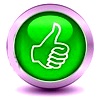A wiki is a web platform that enables multiple users to collaboratively create, edit, and arrange content through a browser.
They emphasize simplicity and openness — pages can be created or modified without special technical skills, and most maintain an edit history so revisions can be reviewed or reverted.
Key features
- **Collaborative editing:** Multiple people can edit the same pages, occasionally concurrently.
- **Edit history:** Each change is logged with a time and the editor’s name or IP.
- **Interlinking:** It’s easy to create links between pages, forming an interconnected knowledge base.
- **Lightweight markup:** Simple markup languages (such as WikiText or Markdown) are used to format pages.
- **Permission settings:** Access controls vary — from fully open editing to permissions for certain users or groups.
- **Discussion pages:** Dedicated discussion pages enable contributors to coordinate and discuss content.
Frequent uses
- Community knowledge bases such as Wikipedia
- Project documentation and internal company knowledge repositories
- Cooperative writing and shared notes
- Classroom and educational projects
Benefits
- **Fast collaboration:** Multiple people can add and refine content quickly.
- **Openness:** Visibility into edits and discussions shows how decisions were reached.
- **Expandable:** Wikis expand easily as contributors add and organize content.
Limitations
- **Vandalism and false information:** Public editing can lead to vandalism or incorrect information.
- **Inconsistent quality:** Entries may vary in accuracy, style, and completeness.
- **Organizational issues:** Without clear governance, content may become fragmented or disputed.
Notable example
- **Wikipedia** — the largest example, maintained by the Wikimedia Foundation and contributed to by volunteers worldwide.






















